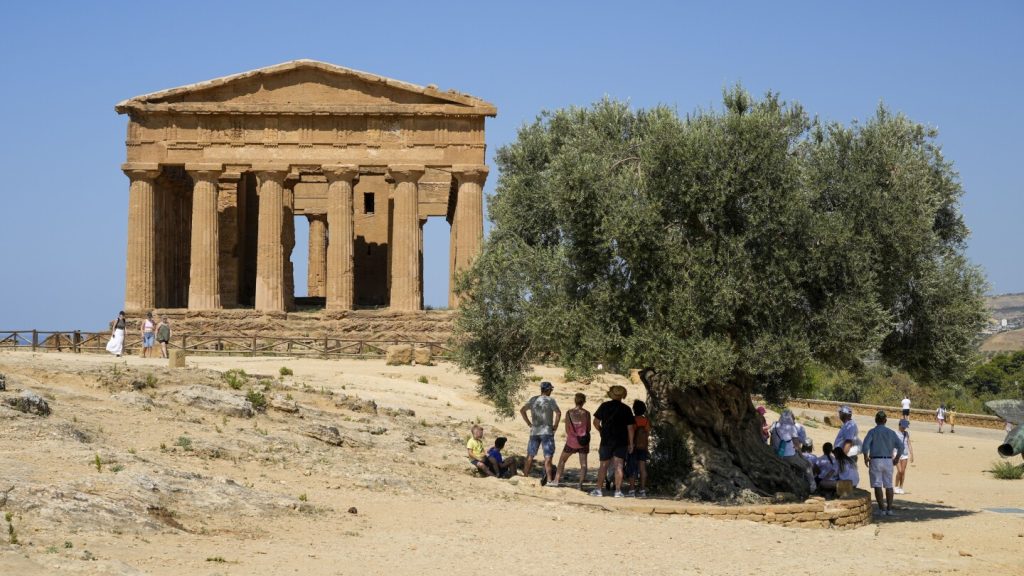In Sicily, Italy, lakes are dry and fields are scorched due to a year with minimal rain, but water is still flowing for tourists in places like Agrigento’s archaeological park. Despite long spells without rain being common on Mediterranean islands, human-caused climate change has made weather more erratic, leading to longer and more frequent droughts. Islanders have adapted by storing water in cisterns and using tankers for delivery, but this year’s drought is severe and putting residents at risk, even as water continues to flow to hotels and tourist sites.
The drought has led to strict water rationing by the local water basin authority, with residents receiving as little as two to four hours of water a week. The first Italian navy tanker ship has arrived to supply 12 million liters of water to the most affected residents. Despite these challenges, Agrigento’s residents are known for their resilience in the face of drought. Even with rationing, they continue to run businesses, hotels, households without sacrificing essential water needs.
Water scarcity is not a new issue in southern Sicily, as the terrain holds little water and aqueducts are often leaking. Most residents have private cisterns to store water, and the city’s rooftops are dotted with large tanks. Tourists continue to visit the region’s beautiful beaches and archaeological sites, seemingly unaffected by the water scarcity that local residents are facing. However, 2024 has been an exceptionally dry year, with Lake Fanaco, a major water source, almost completely dry.
The local water company is prioritizing water delivery to essential groups like hospitals and key businesses, such as hotels, through tanker deliveries. Efforts are being made to address the region’s water infrastructure issues, such as fixing leaks and digging new wells, with emergency funds allocated by the national government. While residents are coping with the water scarcity through tanker deliveries and visits to public fountains, concerns remain about the future impact of climate change and the region’s vulnerability to droughts.
Scientists warn that the Mediterranean basin, including regions like Sicily, will continue to experience higher temperatures, less rainfall, and sea level rise in the coming decades. Climate change has turned what was once considered extraordinary into the new normal for the region, impacting both human society and ecosystems. Efforts to fix water infrastructure and invest in adaptation measures are seen as crucial steps to mitigate the impacts of climate change. Despite these challenges, residents and tourists continue to navigate the water scarcity situation, with a focus on resilience and adaptation in the face of an increasingly uncertain climate future.


